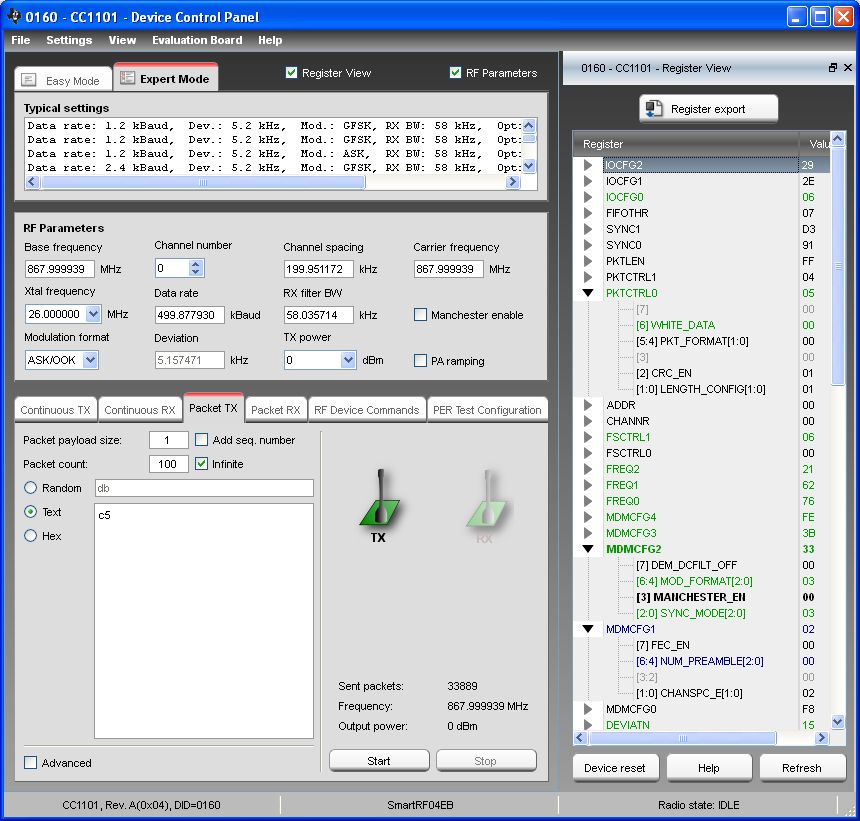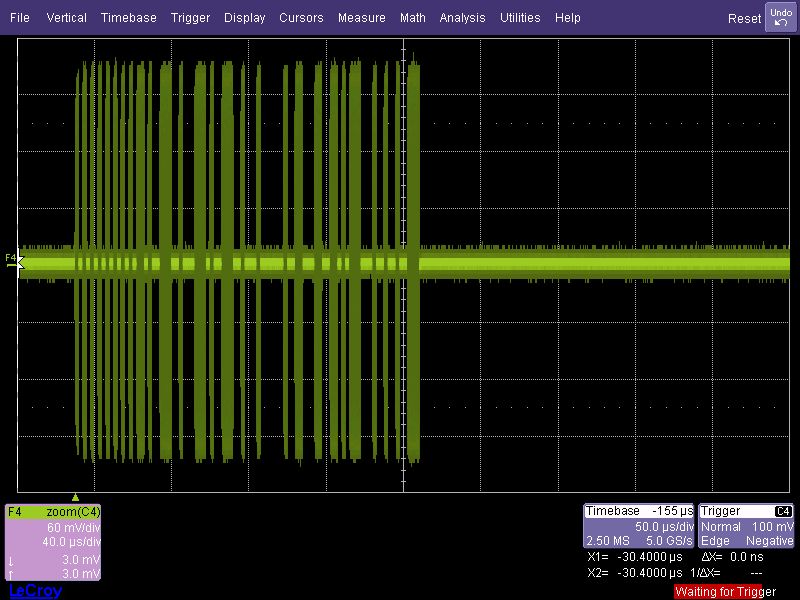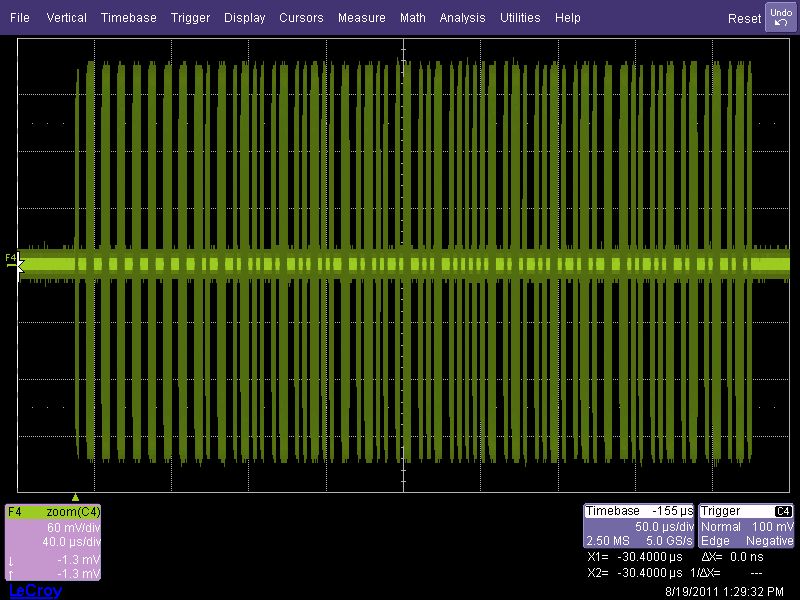I have a receive-only CC1101 application and have complete control over the format of the packet that is transmitted... I'm currently using 32-bits (0xAAAAAAAA)) for the preamble and the sync word is 0xD391. There is 1 byte that gets manchester-encoded to 2 bytes (no CRC for now). This gives me an 8 byte transmit packet.
Q1) How does manchester decoding work on the CC1101 (I have bit 0x08 set in MDMCFG2 (manchester encode enabled))? For example, are the preamble and sync bytes manchester decoded? or are just 2 bytes following the sync word manchester decoded into a single byte?
Q2) I want to use fixed-length packet (set configuration register PKTLEN (0x06) to a fixed number; Lower-2 bits cleared in the PKTCTRL0 (0x08) register [fixed packet length mode]). Do I specify the size of the manchester decoded packet (7 bytes) or the size of the packet that is transmitted (8-bytes)? Are the Preamble & Sync bytes included in the packet length?




